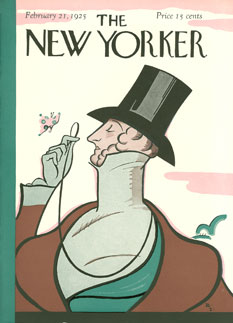My love for the New Yorker is well known, as is my need to read every issue in chronological order, and from front to back. During our trip to Maine, I brought along a large chunk of the backlog, and was able to catch myself all the way up to March. Three articles I read have confirmed and validated my New Yorker OCD.
The first was about a face transplant. I am very squeamish and it was difficult to get through the details of the many different surgical procedures. Yet the article is as much about the psychological implications of transplants as the physiological–questions of identity and the impact of replacement parts thereon–with the focus on transplant recipient, Dallas Wiens.
Wiens was only 23 at the time of his accident, but they had been long and difficult years. In November of 2008, Wiens had got a small job with relatives touching up the paint on a church. As he was operating the hydraulic lift, the top of his head came in contact with high-voltage wires, and he was electrocuted. That he lived at all is miraculous, but it is his description of his near-death experience that has me awestruck.
‘Wiens had no memory of the electrocution, or the hours leading up to it, but he later spoke of having had a religious experience. At the moment his head touched the high-voltage line, he had a profound sense of dying, of being sucked into an infinite void, which he understood to be Hell. “I saw every sin flash before my eyes and then I felt a pain that I never before or since felt,” he said. “It wasn’t physical and it wasn’t internal, it was like being forsaken, that’s the only way to describe it. I remember crying out and hearing nothing and it was utter impenetrable darkness. It was basically separation completely from the divine, and then coming back with God’s arms around me, and an overwhelming sense of peace.”’
I have reread that passage many, many times. And I am still trying to make sense of it. I have struggled with the existence of God, the God of my Catholic upbringing–or any God, really–for what feels like always. The events of September 11, 2001 freed me to believe in the power of myself and others, rather than any kind of supreme being, and I have been satisfied with that. But I am shaken by this vision of the abyss, the absolute hopelessness, of crying out in the darkness. And I am comforted by the rescue and the relief.
I mentioned three articles. The other two are about the genetics of altruism, and a profile of Christian Marclay and his video collage The Clock.” The links go to abstracts only, but if you would like to read any of these, I would be happy to share my subscription.

